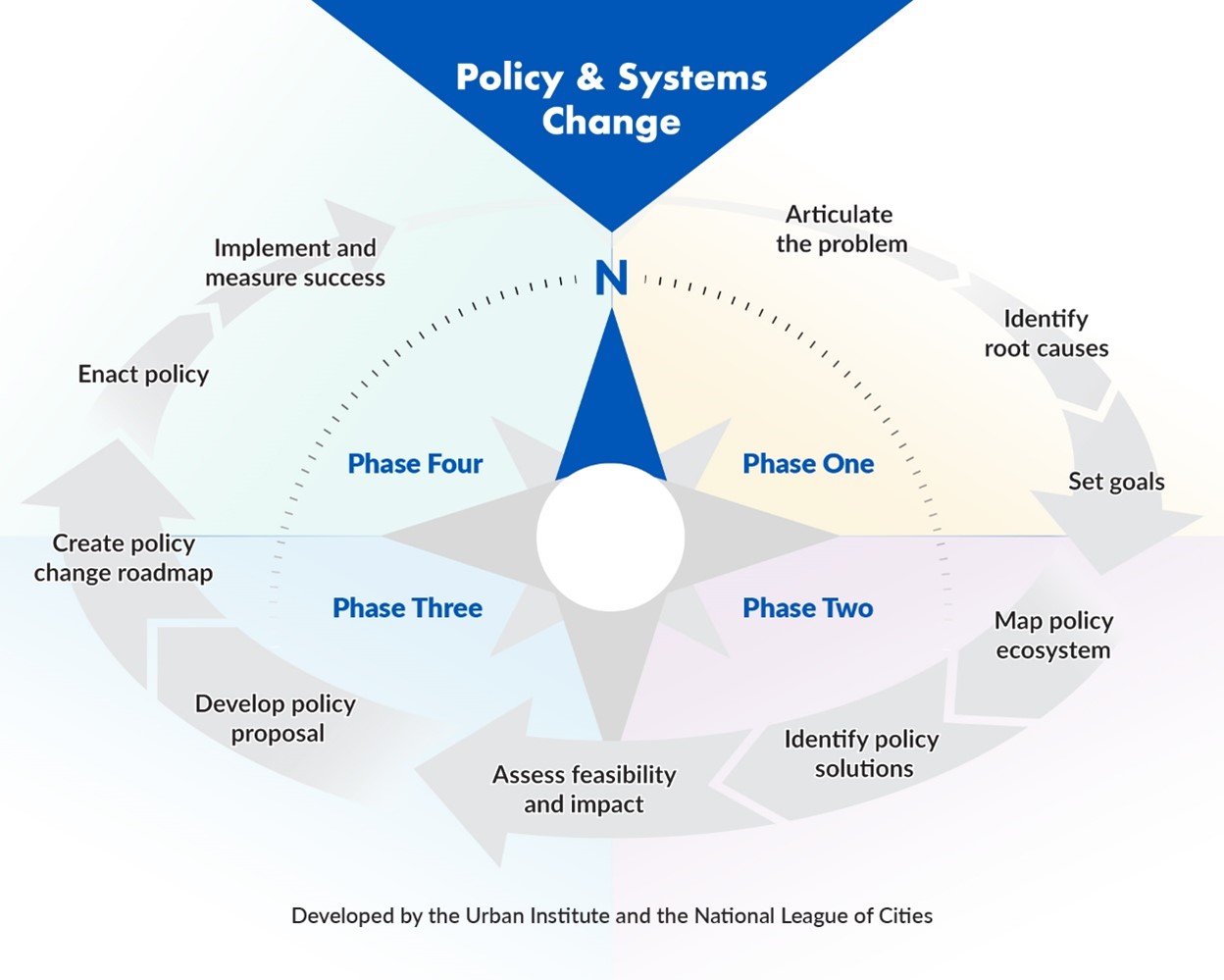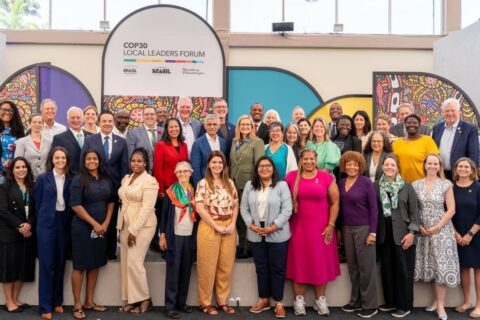Co-authored by Martha Fedorowicz, Training and Technical Assistance Manager, Urban Institute
Creating equitable climate resilience is one of the most pressing—and most complex—challenges facing city leaders today. Extreme weather from climate change affects all facets of communities, including commerce, local government operations, environmental quality, and health.
Increasing evidence shows how historical and present-day structural inequities have overburdened some people more than others when climate risks occur. Beyond the disproportionate effects of climate disasters, the racial wealth gap and inequitable access to health care exacerbate the impacts of climate change on communities of color and communities with low incomes.
What’s more, in the US, we spend more on recovery from major climate events than we do on adaptation—meaning we’re more reactive to climate change than proactive. Part of what makes shifting to a more proactive stance difficult is that major infrastructure investments—which could promote decarbonization or mitigate future climate events—take time and can be extremely expensive.
The implications of not identifying and implementing effective climate resilience policies are immense, especially as climate change can hurt residents’ mental and physical health and well-being. Incidences of extreme heat can have severe consequences for the elderly and children who are still developing, flooding can lead to exposure to mold and other contaminants, low air quality can lead to higher rates of asthma, and exposure to climate disasters can lead to trauma and increased financial strain.

In response to these and other local policymaking challenges, last year, the Urban Institute partnered with the National League of Cities’ (NLC’s) Cities of Opportunity (CoO) initiative to develop and pilot a new process to help cities proactively identify and implement policy changes to advance health equity in their communities. The result of that work was the Policy and Systems Change Compass (“Compass”), a 10-step process that supports municipal teams and their cross-sector partners in identifying and implementing strategic, evidence-based policy solutions to complex problems.
This year, we built on that work by cohosting a policy academy to help four cities—Dearborn, Michigan; Grand Rapids, Michigan; Kansas City, Missouri; and Mount Vernon, New York—use the Compass. Each of the communities had different climate- and health-related challenges they sought to address, but what united them was a shared focus on how racial, ethnic and health disparities would be magnified without meaningful climate resilience efforts.
Other cities interested in achieving similar goals and taking a proactive approach to policy change can similarly use the Compass. Here’s how it worked for Mount Vernon, Kansas City, Grand Rapids, and Dearborn:
Steps to generating more effective policy solutions
Urban and NLC led the four cities through the 10-step process, including supporting them in the following:
- Conducting a root cause analysis to identify the sources behind the challenges they see in their communities.
- Helping map their local policy change ecosystem to identify potential allies and opponents in their policy change effort.
- Training in assessing the feasibility and impact of their policy options across a wide range of factors, such as staff and departmental capacity to implement the policy, budget for policy implementation, the policy’s likelihood of leading to more equitable outcomes over time, and the policy’s ability to remove structural barriers that enable inequities.

This process helped cities develop a wide range of policy proposals to create equitable climate resilience in their communities.
Working through the “identify root causes” step helped one city pinpoint historic decisions that benefited large corporations at the expense of communities of color, who had been disproportionately harmed by the pollution and environmental impacts created by these companies. As a result, this city plans to introduce a new ordinance to outline specific guidelines and criteria for incorporating climate resilience and equity into all infrastructure projects the city undertakes, including situations when the city is considering incentives or changing zoning or permitting that would benefit private companies.

Meanwhile, the Compass’s “assess feasibility and impact” step led another city to select a mandatory healthy housing inspection ordinance for lead, mold, and other unhealthy and unsafe conditions over other policies, like an energy use disclosure policy or limits or subsidies on water utilities, because they assessed that the policy had the highest potential to achieve both their population and systems impact goals and would be highly feasible to enact.
A third city used Compass’s “create the policy change roadmap” step to lay out a detailed plan to get their city council to pass a resolution directing city leaders to develop the first-ever municipal sustainability plan.
Together, these examples show how the Compass can help cities develop climate policies that can achieve health equity and resiliency.
Expanding the reach of the Policy Compass
With the conclusion of the Compass pilot and first policy academy, Urban and NLC continue to work together to update the Compass and our technical assistance based on the experiences of the cities we work with. We are also continuing to explore ways to provide additional technical assistance and support to other places that may want to use the Compass process to achieve meaningful policy and systems change in their jurisdiction.
To learn more about the full Policy and Systems Change Compass process, please read the full brief and our previous blog post or contact the Cities of Opportunity team at CoO@nlc.org.
Achieving Goals Through Nature-based Solutions
Nature-based solutions and green infrastructure are strategies in the toolkit to help policymakers address the intersectional issues of climate change, public health and inequality. Learn how cities are using these tools to achieve their climate action goals.











